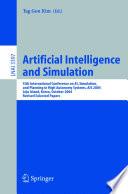
Fundamental Approaches to Software Engineering
11th International Conference, FASE 2008, Held as Part of the Joint European Conferences on Theory and Practice of Software, ETAPS 2008, Budapest, Hungary, March 29-April 6, 2008, Proceedings
This proceedings volume covers requirements and architectures, models and model transformations, conceptual models and UML, service engineering and adaptable services, verification and testing, and objects and components.
- ISBN 13 : 3540787437
- ISBN 10 : 9783540787433
- Judul : Fundamental Approaches to Software Engineering
- Sub Judul : 11th International Conference, FASE 2008, Held as Part of the Joint European Conferences on Theory and Practice of Software, ETAPS 2008, Budapest, Hungary, March 29-April 6, 2008, Proceedings
- Pengarang : José Fiadeiro, Paola Inverardi,
- Kategori : Computers
- Penerbit : Springer
- Bahasa : en
- Tahun : 2008
- Halaman : 434
- Halaman : 434
- Google Book : http://books.google.com/books?id=jhlqCQAAQBAJ&dq=intitle:fundamental+of+logic&hl=&source=gbs_api
-
Ketersediaan :
This area has been addressed by a number of researchers [16,2,19], including
our own work on formalizing feature models in higher-order logic [12]. Feature
models are not the only way to describe the capabilities of a product line.









